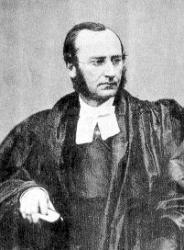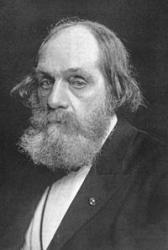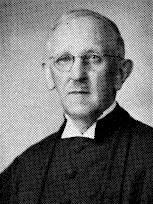Planning worship?
Check out our sister site, ZeteoSearch.org,
for 20+ additional resources related to your search.
- |
User Links
Person Results
C. C. N. Balle
1806 - 1855 Person Name: C. Balle Composer of "A DANISH TUNE" in A Hymnal for Friends Carl Christian Nicolaj Balle was born in Copenhagen on December 25, 1806. He was a Danish composer and editor of church music and served as a pastor in Vesterbølle and Nebsager. He is noted for his Christmas compositions, including the hymn tune "Det kimer nu til julefest". He died on March 3, 1885 in Nebsager, Bjerre, Vejle, Denmark.
NN
C. C. N. Balle
C. P. Krauth

1823 - 1883 Translator of "The Happy Christmas Comes Once More" in American Lutheran Hymnal Charles Porterfield Krauth, D.D.,LL. D.: b. 1823, Martinsburg,Va.; d. 1883. pastor at Baltimore, Pittsburgh and Philadelphia; President of General Council 1870 to 1880; Professor at the University of Penna; professor of Theology, Phila., Pa.; author of "The Conservative Reformation"
Evangelical Lutheran Hymnal, 1908
C. P. Krauth
Fergus Ferguson
1824 - 1897 Author of "The Spirit Moved Upon The Waves" in The Cyber Hymnal Ferguson, Fergus, D.D., second son of the Rev. Fergus Ferguson, of Bellshill, near Glasgow, and afterwards of Aberdeen, was born at Glasgow, September 6, 1824, and educated at the University of Glasgow, where he graduated B.A. 1845 and M.A. 1858. In 1845 he became minister of Blackfriars Street Evangelical Union Church, Glasgow (now Montrose St.). He received the degree of D.D. in 1876, from Cumberland University, U.S. His two hymns appeared in The Daystar, the magazine of the Evangelical Union, and were contributed to the Evangelical Hymn-book of 1856, and the Evangelical Union Hymnal of 1878, he having been a member of both committees of compilation.
They are:—
1. He loved me, and gave Himself for me. The Love of Jesus. Appeared in The Daystar, 1850, and repeated in the Evangelical Union Hymn Book, 1856, and the Evangelical Union Hymnal, 1878.
2. How sweet to the believer's soul. Private Prayer. Given in the Daystar, 1846, and again in the Evangelical Union Hymn Book, 1856, and the Evangelical Union Hymnal, 1878. [Rev. James Mearns, M.A.]
--John Julian, Dictionary of Hymnology (1907)
Fergus Ferguson
Edward Everett Hale

1822 - 1909 Author of "O Father, Take The New-Built Shrine" in The Cyber Hymnal Hale, Edward Everett, M.A., b. at Boston, 1822, and graduated at Harvard. From 1846 to 1856 he was pastor of an Unitarian Church at Worcester; and from 1856 he has had the charge of South Church, Boston. He has published several prose works of merit. His hymn, "O Father, take the new-built shrine" (Dedication of a Church), is dated 1858. It was published in Longfellow & Johnson's Hymns of the Spirit, 1864, No. 223, in 2 stanzas of 4 lines; and was repeated in Martineau's Hymns of Praise & Prayer, Lon., 1873, No. 725. [Rev. F. M. Bird, M.A.]
-- John Julian, Dictionary of Hymnology
Edward Everett Hale
John Needham
? - 1786 Author of "Blush, Atheists, Blush" in The Cyber Hymnal Needham, John, was the son of John Needham, Baptist Minister, of Hitchin, Herts, but the date of his birth is unknown. He would doubtless be educated by his father, who was a tutor and in repute as a learned man. In 1750 Needham became co-pastor with John Beddome at the Baptist meetinghouse in the Pithay, Bristol; but, two years later, Beddome having retired through age, a violent controversy arose in the Church with regard to a continuance of the plan of co-pastorship. As the result, Needham and a number of his friends removed to a Baptist meetinghouse in Callowhill Street, where a Mr. Foot was pastor. For a time the two societies used the same builing at different hours, but in 1755 they were united, with Mr. Needham and Mr. Foot as co-pastors. It is known that up to 1774 this arrangement continued, and it is also known that in 1787, both Mr. Needham and Mr. Foot having died, the Callowhill Street Church became extinct, but which of the two pastors was the survivor is not known. The date of Needham's death is unknown. It was probably circa 1786. In 1768 he published Hymns Devotional and Moral on various Subjects, collected chiefly from the Holy Scriptures, &c, Bristol, S. Farley, 1768. These hymns are 263 in all, and whilst none of them possess great excellence, yet several are of a pleasing and useful character. During the past 120 years several have appeared in Nonconformist hymnbooks, and specially in those of the Baptists. Of these the following are still in common use:—
1. Ashamed of Christ! my soul disdains. Not ashamed of Christ.
2. Awake, my tongue, thy tribute bring. The Divine Perfections.
3. Glory to God, Who reigns above. Jesus, the Messiah.
4. Great author of the immortal mind. Imitation of God's Moral Perfections. From "flow matchless, Lord, Thy glories are."
5. Happy the man whose cautious steps. Christian Moderation.
6. Holy and reverend is the Name. Reverence in Worship.
7. Kind are the words that Jesus speaks. Christ the Strengthener.
8. Lord,ere [Now Lord] the heavenly seed is sown. Parable of the Sower.
9. Methinks the last great day is come. The Judgment.
10. Rise, O my soul, pursue the path. The Example of the Saints.
11. See how the little toiling ant. Youth for Christ.
12. Thou art, O God, a Spirit pure. God a Spirit.
13. To praise the ever bounteous Lord. Harvest.
14. When some kind shepherd from his fold. The Lost Sheep. From this “O how divine, how sweet the joy," in Hatfield's Church Hymn Book, New York, 1872, is taken. [Rev. W. R. Stevenson, M.A.]
--John Julian, Dictionary of Hymnology (1907)
John Needham
Abby Hyde
1799 - 1872 Person Name: Abigail B. Hyde Author of "Behold The Glorious Dawning Bright" in The Cyber Hymnal Hyde, Abby Bradley, was born at Stockbridge, Massachusetts, Sept. 28, 1799, and married to the Rev. Lavius Hyde, of Salisbury, Mass., Sept. 28, 1818. She died at Andover, April 7, 1872. Her first poem, an Address to Mr. Wolfe, the Jewish missionary, appeared in a New Haven paper in 1822 or 1823, and from it Dr. L. Bacon (q.v.) took two hymns for his Hymns & Sacred Songs for the Monthly Concert, Andover, 1823. Those hymns have merit, but are not now in common use. Asahel Nettleton included 9 pieces by her in his Village Hymns, 1824, and 34 more were given in the revised and enlarged edition of the same, 1851. An additional hymn appeared in Nason's Congregational Hymn Book, 1857.
Of those hymns the following are still in common use:—
1. Ah, what can I a sinner do! Lent. From Nettleton's Village Hymns, 1824, in 5 stanzas of 4 lines, into a few collections.
2. And canst thou, sinner, slight! Grieve not the Spirit. From Nettleton's Village Hymns, 1824, in 4 stanzas of 4 lines, into a great number of American collections, and a few in Great Britain.
3. Behold the glorious dawning bright. Second Advent. From Nettleton's Village Hymns, 1824, in 4 stanzas of 4 lines. Limited in use.
4. Dear Saviour, if these lambs should stray. Prayer on behalf of children. In Nettleton's Village Hymns, 1824, in 4 stanzas of 4 lines. A touching hymn, and widely used.
5. Say, sinner, hath a voice within! Exhortation to Repentance. In a letter to Mr. Nason, dated July 10, 1857, Mrs. Hyde says that this hymn "was written down from my lips by a young sister, when I was not able to hold up my head from the pillow." It appeared in Nettleton's Village Hymns, 1824, in 6 stanzas of 4 lines, and is in extensive use.
All Mrs. Hyde's pieces in the Village Hymns are signed "Hyde." [Rev. F. M. Bird, M.A.]
-- John Julian, Dictionary of Hymnology
Abby Hyde
J. C. Aaberg

1877 - 1970 Translator of "I Come, Invited By Thy Word" in American Lutheran Hymnal Jens Christian Aaberg (b. Moberg, Denmark, 1877; d. Minneapolis, MN, 1970) immigrated to the United States in 1901. Educated at Grand View College and Seminary in Des Moines, Iowa, he entered the ministry of the Danish Evangelical Lutheran Church in America and served congregations in Marinette, Wisconsin; Dwight, Illinois; and Minneapolis, Minnesota. Aaberg wrote Hymns and Hymnwriters of Denmark (1945), translated at least eighty hymns from Danish into English, and served on four hymnal committees. In 1947 King Frederick of Denmark awarded him the Knight Cross of Denmark.
--Psalter Hymnal Handbook, 1987
J. C. Aaberg
Thomas Kingo

1634 - 1703 Author of "I Come, Invited By Thy Word" in American Lutheran Hymnal
Thomas Kingo
Edward Shippen Barnes

1887 - 1958 Arranger of "[The happy Christmas comes once more]" in The Mennonite Hymnary, published by the Board of Publication of the General Conference of the Mennonite Church of North America Edward Shippen Barnes was an American organist and composer. He was born 9 September 1887 in Seabright, NJ and died 2 February 1958 in Idyllwild, CA. He studied at Yale University with Horatio Parker and Harry Jepson, then continued his studies in Paris. He worked as an organizt at Church of the Incarnation in New York, Rutgers Presbyterian Chruch in New York, St. Stephen's Episcopal Church in Philadelphia and the First Presbyterian Church in Santa Monica. He is known for his organ syvmphonies.
Dianne Shapiro
Edward Shippen Barnes
Franklin P. Frye
1903 - 2003 Person Name: Franklyn P. Frye, 1903- Author of "As We Before Thine Altar Bow" in Hymnbook for Christian Worship Frye, Franklin P. (New Hampshire, 1903-?). Was minister of the United Methodist Church of Bedford, New Hampshire. Received the Ph.D. degree in 1924 from Wesleyan University, and his S.T.B. from Boston University School of Theology in 1928; served churches in Connecticut, Massachusetts, and New Hampshire, retiring in 1965 when pastor at Epworth Church, Worcester, Mass.
--The Hymn Society, DNAH Archives
=====================
Since [retirement] [Frye] has been active as a free lance preacher and writer. His hymn, "As we before thine altar bow," was published by the Hymn Society of America in Marriage and Family Life Hymns (1961) and it has been chosen for the new Christian Churches-American Baptist hymnal. Mr. Frye and his wife, Agnes, have a daughter and two sons and ten grandchildren. He is a member of World Federalists U.S.A. and the New Hampshire Committee for Peace in Vietnam.
--Ten New Hymns for the 70's, 1970. Used by permission.
Franklin P. Frye


 My Starred Hymns
My Starred Hymns

